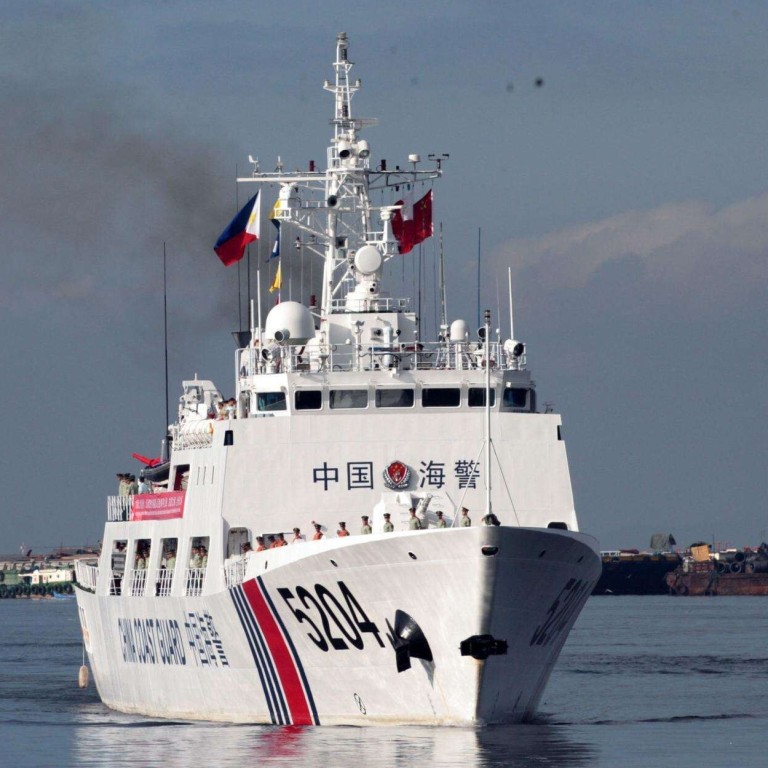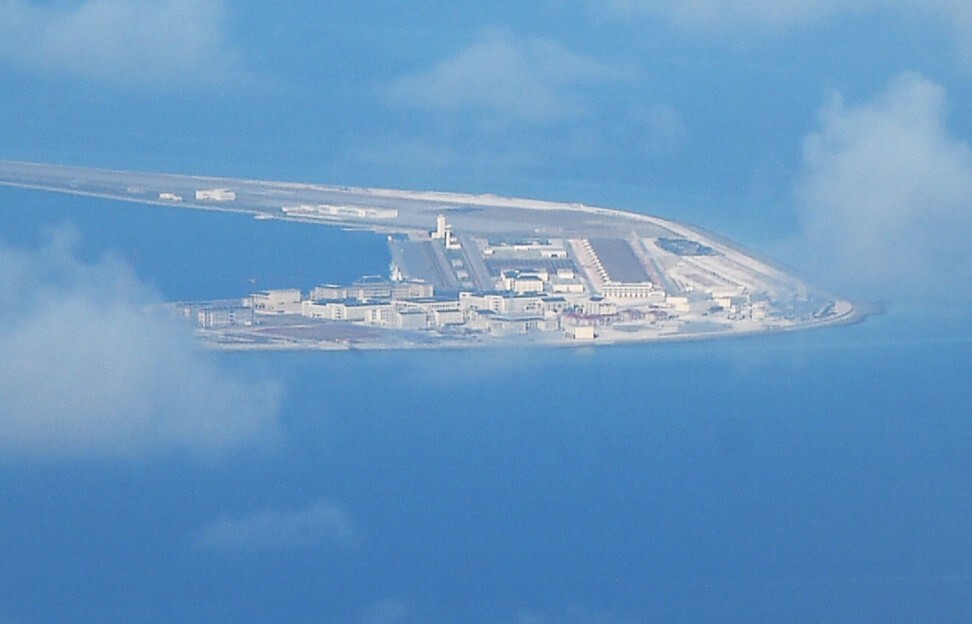
China drafts law to expand coastguard’s powers over islands and foreign vessels
- Civilian patrols would be authorised to guard Chinese-controlled reefs and islands, including artificial islands
- As well as protecting Chinese maritime assets, the law would allow the coastguard to prevent terrorism, smuggling and environmental crimes
The Chinese coastguard will also have the right to board, search, detain and expel foreign vessels, and arrest individuals suspected of seriously violating Chinese laws in the waters under Chinese jurisdiction, it stipulated.
The draft law would make clear the Chinese coastguard’s role in maritime security, administrative law enforcement, criminal investigation and international cooperation. It would regulate the use of police equipment and arms and define the limits of the authority and the means and procedures to carry out its role.
The coastguard would oversee 11 aspects of the sea, such as patrolling Chinese-administered waters and guarding Chinese-controlled reefs and islands, including artificial islands.
It would also take counterterrorism measures on the seas, investigate smuggling and other criminal acts, protect the marine environment, oversee other vessels’ resource exploration and exploitation, manage fishery activities, and search and rescue.
The draft says the coastguard “has the right” to order foreign organisations and individuals to stop the construction of buildings, structures and deployment of floating devices on islands claimed by China.
Beijing seeks boost for armed police and coastguard amid rising tensions
“For those who do not stop the illegal activities or refuse to make rectifications within a time limit, the coastguard may forcibly dismantle [buildings and structures] in accordance with law,” it said.
This law would define the standard operating procedure for the coastguard, and most importantly, create a “transparent regulation” internationally, said Chen Xiangmiao, a researcher with the National Institute for South China Sea Studies.

“When the Chinese coastguard interacts with foreign law enforcement, foreign coastguards or foreign navies in the disputed South China Sea or East China Sea, all sides would be clear about their actions and reasons, which makes it foreseeable and safe,” he said.
Chen said the move would provide a legal foundation for China’s jurisdiction and did not necessarily mean the coastguard would immediately demolish structures in sensitive areas with overlapping claims.
“That would be a significant diplomatic issue apart from a simple legal issue,” he said. “But activities like foreigners erecting a sovereignty monument on an uninhabited feature would certainly be stopped.”
US Navy chief John Richardson has said his forces would not treat China’s coastguard differently than the PLA Navy.
This law would allow coastguard officers to be armed and, in certain circumstances, to use force, including if foreign vessels resisted an order and could not be stopped without force. China’s coastguard could open its ship-borne and airborne weapons in anti-terrorism missions, serious violent offences or if under attack.
Japan’s jetfighter plan to counter China in Diaoyus hits money snag
When a warning is too late or too risky, the law would allow coastguard personnel to use weapons without warning. But they are also required to keep force “to a minimum”.
Chen said the coastguard law was intended to underline that the nature of this force was civilian, not military, by defining limits of the use of force.
“It does say according to relevant laws and under the command of the CMC, the coastguard could, in certain circumstances, carry out some military defensive missions, but this is for special occasions and such conduct is also not unusual. The US Coast Guard took part in WWI and WWII under the US Navy command,” he said.

